WTO’s World Trade Report 2023: Re-globalization's Path to a Sustainable and Equitable Future
The World Trade Organization's (WTO) annual World Trade Reports serve as a guiding light for policymakers worldwide, navigating the intricate labyrinth of the global trade environment.
In this article, I have aimed to capture the essence of the 2023 report, emphasizing the importance of "re-globalization" for a secure, inclusive, and sustainable future. Not only does it highlight the key takeaways, but it also seeks to elucidate why this report is a must-read for those interested in the future of global trade.
Leafing through the Report, I was reminded of the many faces behind global trade—people seeking better opportunities, communities aspiring for growth, and nations aiming for progress. This report is not just about policies; it's about lives and dreams.
The Landscape of Global Trade and Recent Challenges
For over seven decades, the international economic order has thrived on interdependence, spurring growth and uplifting living standards. The collaborative spirit post-World War II envisioned a harmonious global economy built on strong trade and economic connections. However, the WTO Director-General, Dr. Ngozi Okonjo-Iweala, points out that recent geopolitical shifts and various crises challenge this long-standing vision.
The report addresses the growing sentiment advocating economic independence over interdependence. While proponents argue that globalization magnifies risks, the WTO identifies potential perils of a fragmented world economy. Detractors of fragmentation believe that it could curb growth, stymie development, and prevent global collaborative efforts. Importantly, the report positions "re-globalization" as a potential solution to these challenges.
Security, Inequality, and Environment: Three Pillars of Trade Policy
The World Trade Report 2023 delves into the interplay between globalization and three crucial areas: security, economic inequality, and environmental sustainability.
Security: Current geopolitical tensions may reconfigure trading partnerships, but it is imperative not to let these shifts jeopardize global peace. Economic integration can offer countries the buffer to manage bilateral tensions, and the WTO serves as a key platform for these engagements.
Economic Inequality: Globalization has had an undeniable positive impact on poverty reduction and the narrowing of the wealth gap between nations. However, in-country inequality is a nuanced issue. The report highlights that while trade openness can sometimes lead to income inequality, appropriate domestic policies can cushion adverse impacts.
Environmental Challenges: Addressing environmental issues demands global cooperation. International trade is pivotal for the spread of green goods, services, and innovative solutions. The WTO's analysis emphasizes that fragmentation could hinder the transition to renewable energy and exacerbate environmental concerns.
Leafing through the Report, I was reminded of the many faces behind global trade—people seeking better opportunities, communities aspiring for growth, and nations aiming for progress…
Re-globalization: The Way Forward
Re-globalization stands as a beacon of hope in uncertain times. The report underscores the potential of integrating marginalized countries and communities into the global economy. Diversified markets bolster resilience against shocks, and ensuring equitable distribution of trade benefits is paramount.
Technological advancements present fresh avenues for trade growth. The upswing in digital services trade and the increased trade in environmental goods point towards an evolving global marketplace.
However, reaping these benefits necessitates international cooperation. Tackling existing issues, such as agricultural trade costs, is essential. As Dr. Ngozi Okonjo-Iweala puts it, while the WTO isn't flawless, abandoning it isn't the answer. Strengthening the trade system is the need of the hour.
My Key Takeaways from the Report
Over the last decade, geopolitical tensions have led to skepticism about the benefits of global trade, culminating in more stringent global trade policies.
While the US-China tariff wars and the Ukraine war indicate changes in trade dynamics, global trade remains resilient amidst these challenges.
The WTO's various initiatives showcase the organization's proactive role in promoting and managing global trade.
The multifaceted challenges of geopolitics, health, and climate change have broadened security concerns, influencing the course of global trade.
Diversified global suppliers ensure security and resilience in the face of unpredictable global challenges.
Emphasizing the importance of re-globalization, the report suggests addressing barriers in sectors like agriculture to boost security through trade diversification.
Trade has been a critical instrument in poverty reduction and narrowing global income disparities, highlighting its potential for inclusivity.
Fragmented approaches to issues like climate change are less effective, underscoring the need for international collaboration.
The evolving nature of trade, driven by technological advancements and changing global dynamics, indicates future growth potential, especially in sectors like digital services.
Conclusion
The World Trade Report 2023 offers a comprehensive examination of global trade's current landscape and its future trajectory. It makes an impassioned case for "re-globalization" as the optimal path forward. Dr. Ngozi Okonjo-Iweala's insights, in the Introduction to the report, underscore the imperative of international collaboration.
Having conversed with industry peers and stakeholders, I find that our collective vision aligns with many insights from the World Trade Report 2023. It's both a validation and a call to action.
For those seeking a deeper understanding of the challenges and opportunities facing global trade, this report is an invaluable resource. Encouragingly, it paints a picture of a world where trade acts as a bridge, fostering peace, prosperity, and planet conservation.
This is the link to the full report.



